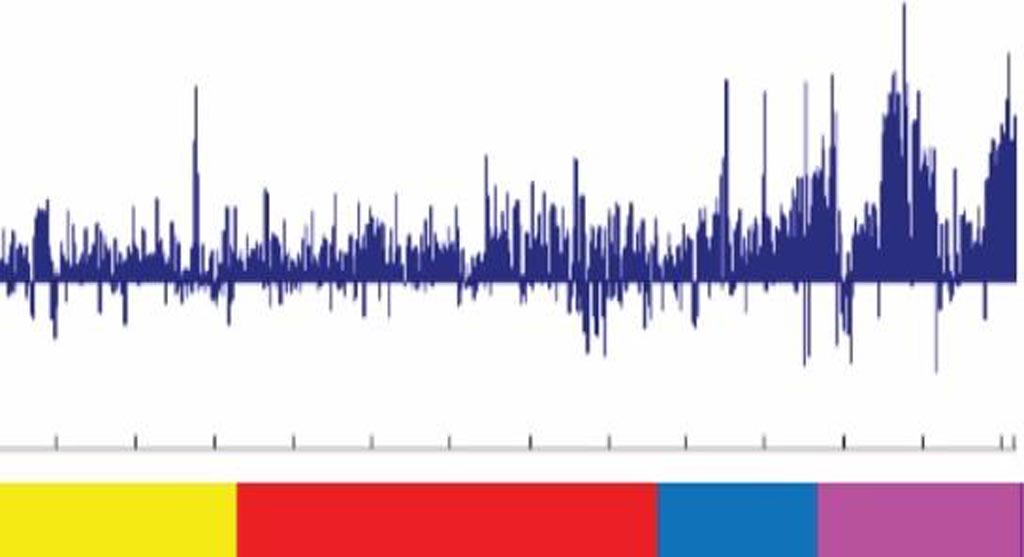Hormone Treatment Linked to Development of Aggressive Cancer
By LabMedica International staff writers
Posted on 06 Dec 2018
A team of cancer researchers has identified a gene that promotes the growth and spread of the most aggressive type of prostate cancer.Posted on 06 Dec 2018
While many forms of prostate cancer require little or no treatment, the aggressive type that spreads to other parts of the body and resists hormone therapy is usually fatal with only a third of such patients living for five years after diagnosis.

Image: Graph shows elevated activity of a transcription-factor network that includes the molecule onecut2 in tumors of patients whose prostate cancer resisted hormone therapy (above purple bar) compared with other types (Photo courtesy of the Nature Publishing Group).
Previous studies have shown that treatment of prostate cancer (PC) by androgen suppression promoted the emergence of aggressive variants that were androgen receptor (AR) independent. In a paper published in the November 26, 2018, online edition of the journal Nature Medicine, investigators at Cedars-Sinai Medical Center (Los Angeles, CA, USA) identified the transcription factor ONECUT2 (OC2) as a master regulator of AR networks in metastatic castration-resistant prostate cancer (mCRPC).
The ONECUT2 (one cut homeobox 2) gene encodes a member of the onecut family of transcription factors, which are characterized by a cut domain and an atypical homeodomain. The OC2 protein binds to specific DNA sequences and stimulates expression of target genes, including genes involved in melanocyte and hepatocyte differentiation.
In the current study, OC2 was found to act as a survival factor in mCRPC models, suppressing the AR transcriptional program by direct regulation of AR target genes. It also activated genes associated with neural differentiation and progression to lethal disease. Furthermore, OC2 was active in a substantial subset of human prostate adenocarcinoma and neuroendocrine tumors.
Following up, the investigators identified the compound CSRM617, which counteracted the action of onecut2. They showed that CSRM617 significantly reduced the size of prostate cancer metastases in mice.
"We need fresh strategies to prevent prostate cancer from turning deadly for the thousands of men whose disease metastasizes and withstands hormone therapy," said senior author Dr. Michael Freeman, professor of surgery and biomedical sciences at Cedars-Sinai Medical Center. "Our research suggested that onecut2 is a master regulator of lethal prostate cancer that may be a useful therapeutic target in up to a third of patients whose cancer spreads and evades hormone therapy."
Related Links:
Cedars-Sinai Medical Center













